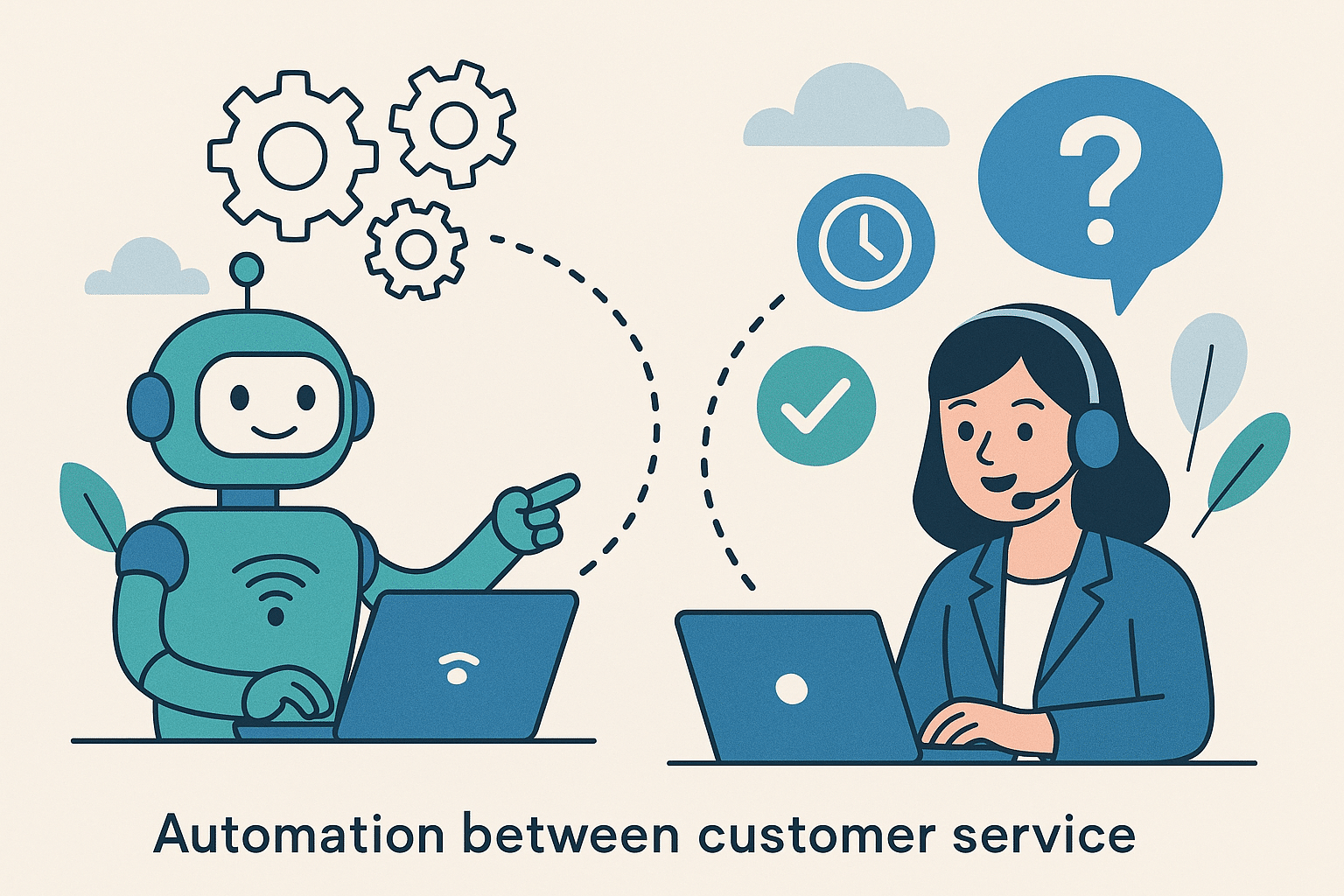In today’s fast-paced business environment, customer expectations are higher than ever. Clients expect fast responses, personalized interactions, and seamless experiences across multiple channels. Meeting these expectations is challenging, but automation is proving to be a game-changer. By streamlining internal processes, reducing errors, and freeing employees to focus on higher-value tasks, businesses can deliver better service and build stronger customer relationships.
Streamlining Processes for Efficiency
One of the first ways automation improves customer service is by making internal processes more efficient. When repetitive tasks are handled automatically, employees spend less time on mundane work and more time on solving complex customer issues. This can include tasks such as order processing, inventory updates, and data entry.
Many companies are leveraging manufacturing software development services to create automated systems tailored to their operational needs. While these solutions are often associated with manufacturing, their impact on customer experience is significant. For instance, when production schedules, inventory, and logistics are automated and monitored in real time, companies can guarantee faster delivery times, more accurate stock information, and fewer errors in orders. Customers notice these improvements immediately, even if they never see the automation working behind the scenes.
Automation also reduces the risk of human error. Misplaced orders, incorrect invoices, or delayed shipments can damage customer trust. Intelligent software ensures that data is accurate and consistent across systems, meaning customers receive the right product at the right time. Over time, this reliability strengthens brand loyalty and enhances overall satisfaction.
Enhancing Interaction with AI
Beyond internal processes, automation directly affects how businesses communicate with clients. ai chatbot development in usa is one of the most visible examples. Chatbots powered by artificial intelligence can handle routine inquiries instantly, provide 24/7 support, and guide users through complicated processes without long wait times.
Consider a retail company receiving hundreds of questions about order status, returns, or product information daily. A well-designed AI chatbot can answer most of these queries immediately, freeing human agents to focus on more nuanced issues. This not only improves response times but also ensures that customers feel heard and supported. The result is a more efficient, personalized, and responsive customer service experience.
Advanced AI chatbots can also learn from interactions. By analyzing patterns, they can anticipate customer needs and offer proactive solutions. For example, if a customer frequently checks shipping updates, the chatbot can provide automated notifications when their order status changes. Over time, this predictive capability makes interactions feel more intuitive and tailored.
Consistency and Personalization
Automation doesn’t just make service faster; it makes it more consistent. Customers expect the same level of quality and attention regardless of the channel or time of day. Automated systems can enforce standard procedures and ensure that every interaction aligns with company policies and best practices.
At the same time, automation enables personalization at scale. By collecting and analyzing customer data, businesses can tailor recommendations, offers, and communications to individual preferences. For example, an automated system can track purchase history and suggest complementary products or services, enhancing the customer experience while driving additional revenue.
Measuring Impact and Continuous Improvement
Another advantage of automation is the ability to measure and improve. Automated systems generate data on response times, issue resolution, and customer satisfaction. By monitoring these metrics, businesses can identify bottlenecks, optimize processes, and continuously refine their service.
Feedback loops are crucial here. AI-powered tools can flag recurring problems or highlight areas where human intervention is needed. This ensures that automation enhances service rather than replacing the human touch entirely. Employees remain central to complex problem-solving, while automation handles repetitive or predictable tasks efficiently.
Automation and Corporate Compliance
Although automation is often referred to as a time-saving and customer delight tool, it remains a major player in corporate compliance. Some business organizations are so heavily regulated that they are almost on the verge of collapse due to the rigorous requirements for data protection, financial accuracy, and industry standards that they must comply with. The manual method of keeping pace with these requirements opens up a large possibility of mistakes. Failure even in minor parts can lead to the issuing of money-heavy penalties or image degradation.
Automation makes this possible to lower such possibility by providing standardization. For instance, if one is obtaining a payment, saving clients’ data, or following up on a conversation, every single step can be recorded automatically and securely. By this, a certain audit trail is established, and hence, reporting for the compliance in question becomes not only faster but also more trustworthy.
Additionally, AI-powered compliance instruments are always on the lookout and address a problem immediately. For instance, they can indicate an illegal transaction, verify that data handling is in accordance with privacy laws, or confirm that employee communication aligns with company policy. The companies, instead of rushing to rectify the issues immediately after the mishaps, can inadvertently exacerbate compliance-related problems in this manner.
Consequently, customers and stakeholders gain more confidence. In addition to automating and thus facilitating the offering of better products and services, a company also becomes more accountable and ethical, and this is what is mainly required in the present-day business environment.
Conclusion
The connection between automation and better customer service is undeniable. By streamlining processes, reducing errors, and enhancing communication, businesses can provide faster, more reliable, and personalized experiences. Automation allows employees to focus on meaningful interactions while systems handle repetitive tasks efficiently.
Companies that embrace automation strategically will be better equipped to meet growing customer expectations, improve satisfaction, and build long-lasting relationships. From internal workflows to AI-driven



















